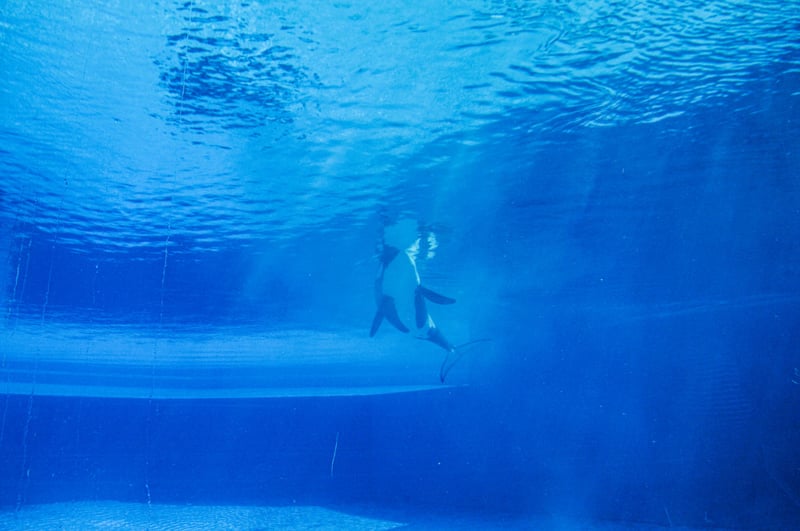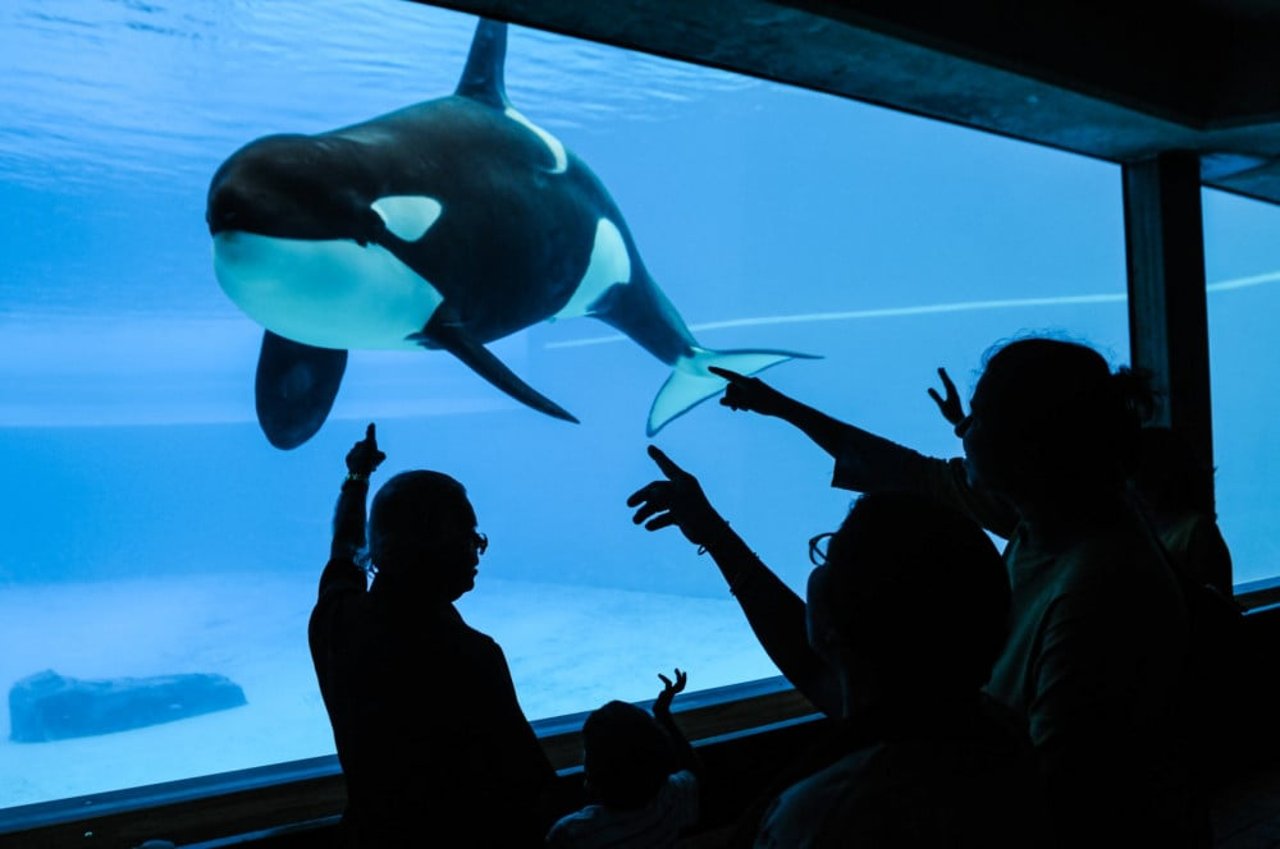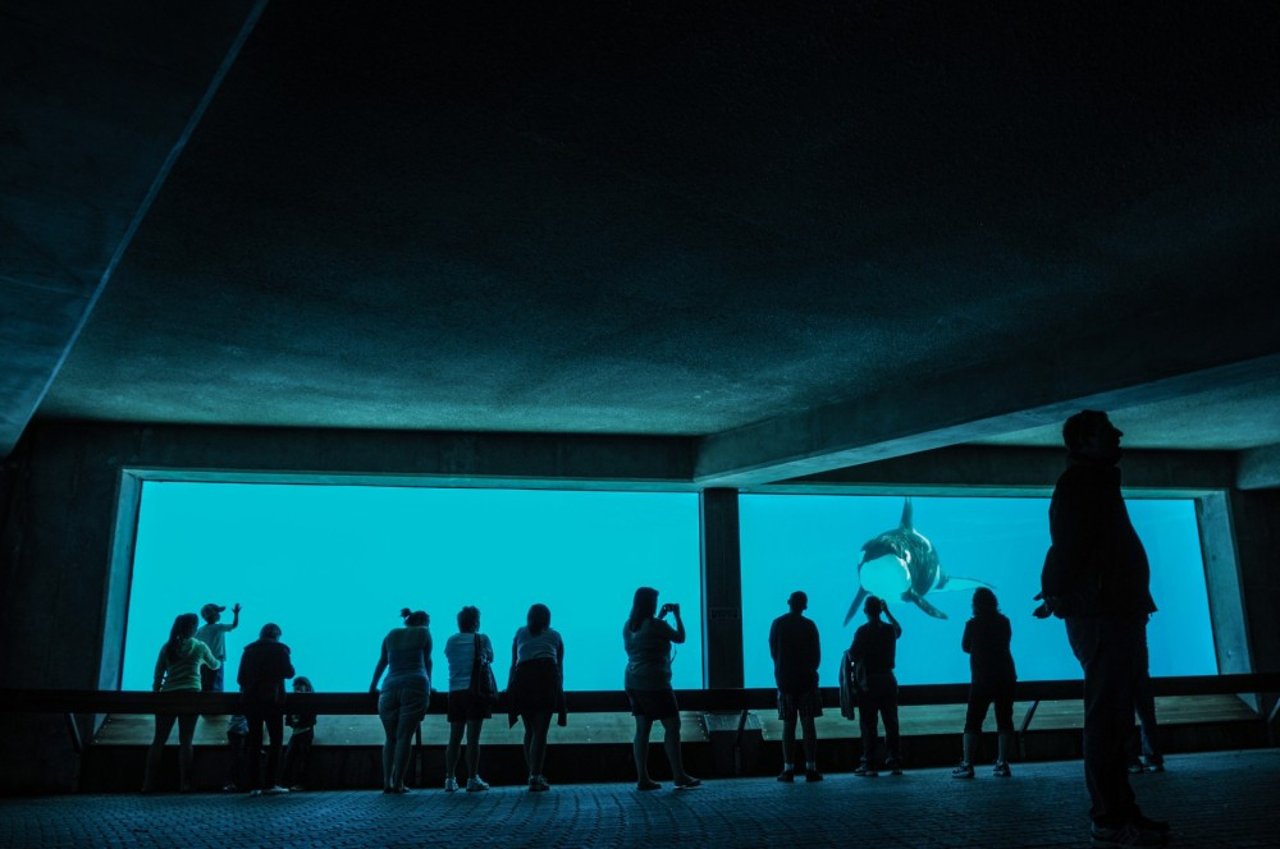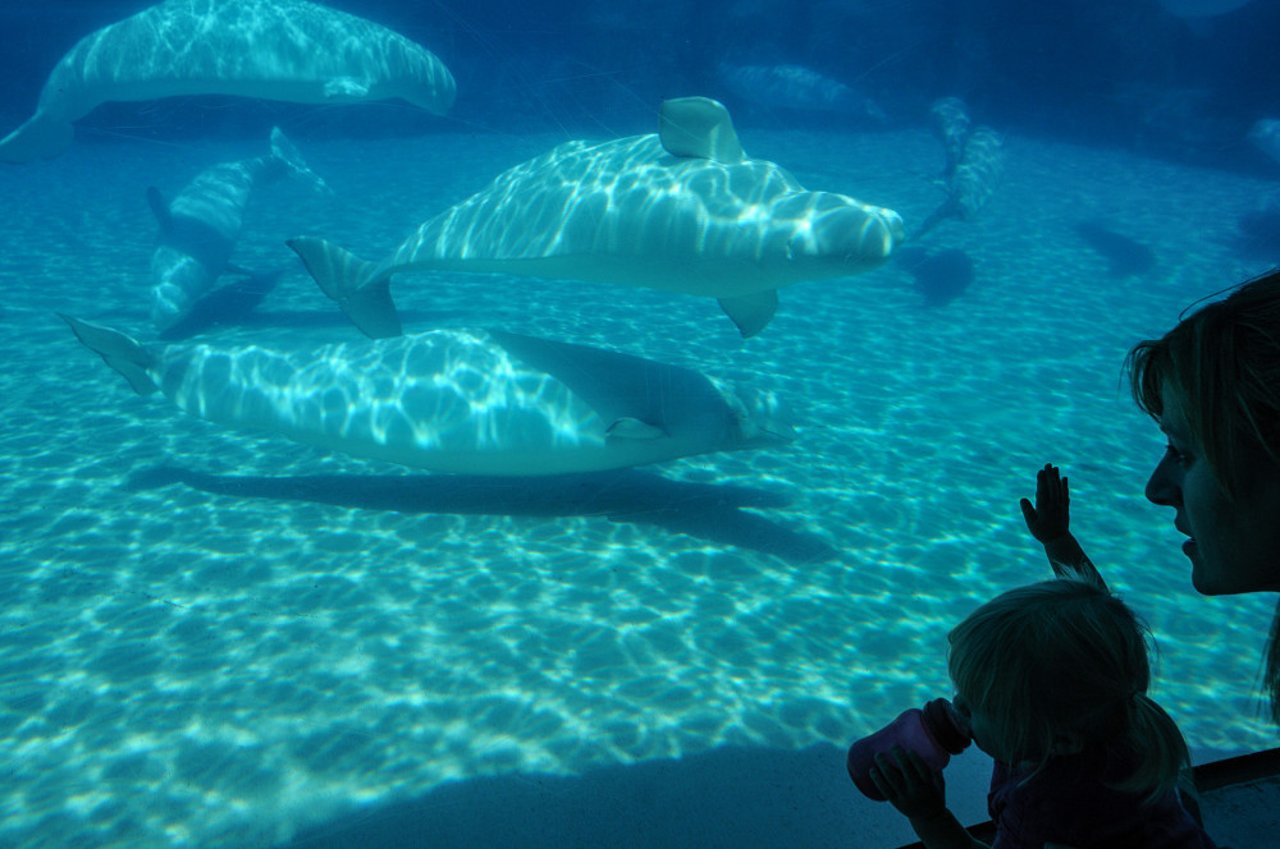
Remembering Kiska: Canada's last captive orca
Blog
Kiska, the last captive orca in Canada, passed away after more than four decades of living in captivity. Her story highlights the systemic issues of the captive cetacean industry and the need for solutions like the Whale Sanctuary Project.
Canada's last captive orca, Kiska, passed away on March 9th at Marineland in Niagara Falls, Ontario. For more than 40 years, Kiska had lived in captivity, without the opportunity to swim freely in the ocean or form natural bonds with other orcas as she would have done in the wild. Her story is a tragic example of the systemic issues within the captive wildlife entertainment industry.
Kiska alone in her tank at Marineland Niagara (Photo credit: Jo-Anne McArthur / We Animals Media)
Kiska’s story
Kiska was initially captured off the coast of Iceland when she was just three years old. She was later transferred to Marineland in Ontario, where she spent the rest of her life in a small, barren, concrete tank.
Throughout her captivity, Kiska gave birth to five calves, all of whom died at a young age. Orcas are extremely social animals that form strong family bonds, so you can only imagine the distress, trauma, and devastation that losing all her calves would have caused to her.
According to marine mammal scientist, Dr. Naomi Rose, marine mammals simply do not do well in captivity. In the wild, cetaceans such as dolphins and orcas swim vast distances from 60-225 kilometers every day and can dive to a depth of 1,000 meters several times a day, every day. You cannot replicate this type of environment in captivity. When you put an animal built for the wild in a captive setting, they are going to experience immense physical and psychological suffering.
Kiska’s tragic situation of loneliness and isolation highlights the cruelty of the captive cetacean industry. She was often seen displaying stereotypies, abnormal and repetitive behaviours that are common in captive animals who suffer from boredom, stress, and a lack of stimulation.
In fact, Kiska's story gained international attention after a video of her banging her head against the tank went viral in 2021. She became known as the "loneliest orca in the world" after her tank mate, Nootka, passed away, leaving her alone in her tank at Marineland for the past 12 years.
The growing list of health problems, accidents, failed pregnancies, and premature deaths of captive cetaceans has turned a spotlight on the cruelty of this industry and the desperate need for humane solutions. Animals deserve better than a life of suffering in cruel and unnatural captivity for human entertainment.
Kiska alone in her tank at Marineland Niagara (Photo credit: Jo-Anne McArthur / We Animals Media)
Advocating for an end to wildlife entertainment
Despite banning cetacean captivity in Canada and their use for entertainment, Marineland has faced charges for allegedly using captive dolphins for entertainment purposes. The court case against the park began in early 2022 but was stayed in December of that year mainly because of a backlog in the court system due to COVID. World Animal Protection visited Marineland in the summer of 2022 and submitted new evidence to the local police of dolphins that were also seemingly used for entertainment purposes.
While it is sadly too late for Kiska, there is some hope for other captive cetaceans through the work of the Whale Sanctuary Project (WSP). The WSP has proposed building the world's first seaside sanctuary in Nova Scotia, which could provide a new home for captive orcas, beluga whales, and other cold-water cetaceans. Seaside sanctuaries offer a more natural environment for captive cetaceans, where they can engage in a wider range of natural behaviours like foraging and interacting with other species.
At World Animal Protection, we are fighting for all captive wild animals kept in degrading conditions. Currently Ontario lacks any substantial regulations to protect wild animals in captivity. We are urging the Ontario government to take responsibility and pass regulations that will address the substandard conditions in which wild animals are kept in the province.
Kiska's passing is a reminder of the urgent need for change in the captive wildlife industry. At World Animal Protection, we will continue to advocate for captive animals and push for responsible alternatives to captivity.
We hope that Kiska's legacy will inspire others to work towards a world where all animals can live free and wild lives.
Belugas at Marineland Niagara (Photo credit: Jo-Anne McArthur / We Animals Media)
Banner photo credit: Jo-Anne McArthur / We Animals Media


